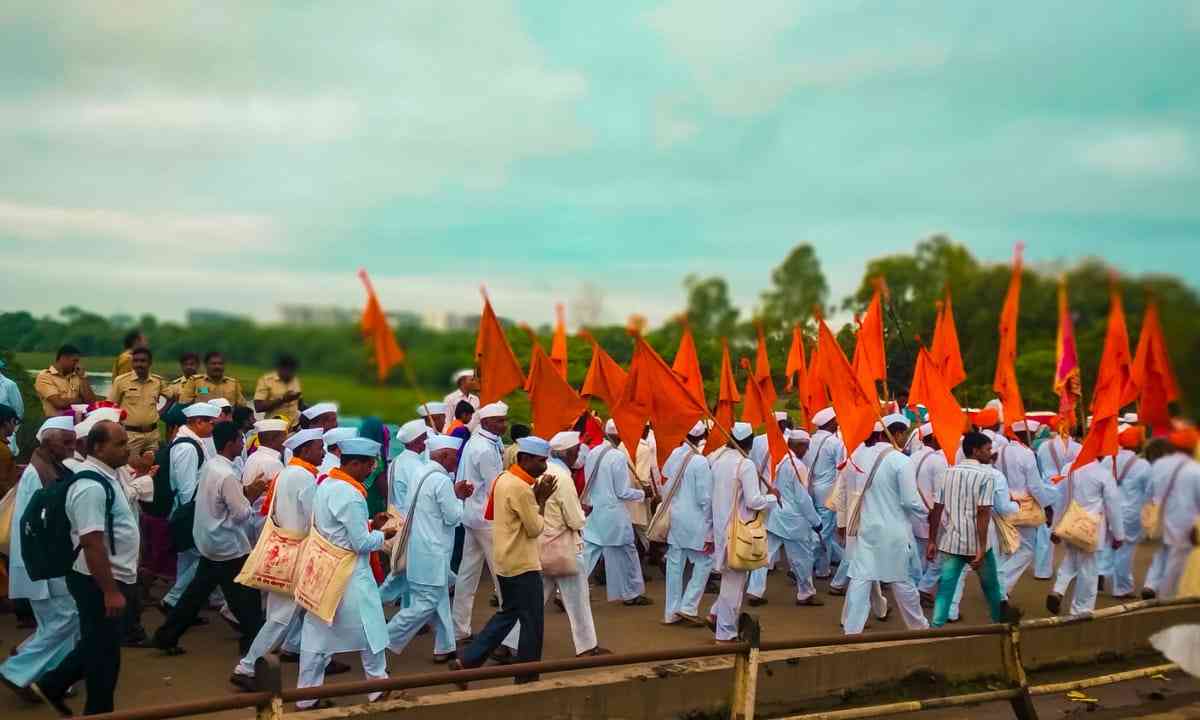Today, on the occasion of Ashadhi Ekadashi, here is all you need to know about Wari.
The literal meaning of the word Wari is repetition. Pandharpur Wari is a Yatra organized to honour Lord Vithoba every year.
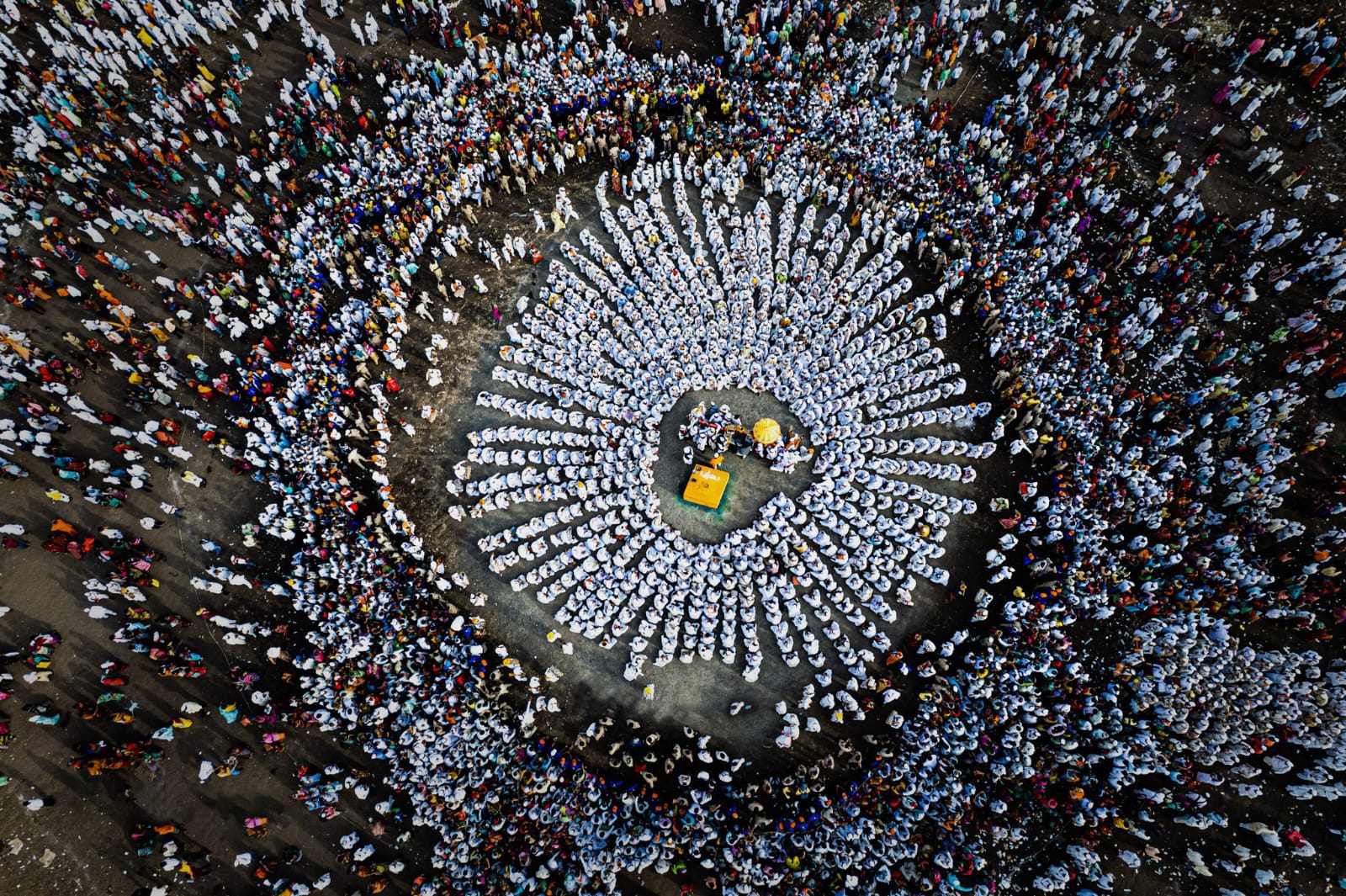
Amongst the most significant festivals in Maharashtra during the initial days of the Monsoon - The pilgrimage known as Wari, Pandharpur Yatra, is something that one should experience once in a life. This Wari is generally held in the Hindu month ‘Ashadh’. During this period, a number of devotees known as Warkari (ones who do the Wari) from all over Maharashtra start their walking journey carrying the Palakhi (palanquins) with small statues of deities, Vithoba and Rakhumai. The Warkaees destination is Pandharpur in the Solapur district of Maharashtra.
This ritual of Wari was started many hundreds years ago by various saints in Maharashtra, like Saint Dnyaneshwar, Saint Tukaram, Saint Namdev, who were devotees of Lord Vithoba. Thus, to memorize them in the Wari, their Palkhis also join this walking pilgrimage. Saint Dnyaneshwar's Palkhi from Alandi, Pune and Saint Tukaram's Palkhi from Dehu, Pune. These two Palkhis, which hold major significance in Wari, join the pilgrimage from Pune to Pandharpur. And all other Warkari with their Palkhis join the flow from Jejuri, Saswad in Maharashtra and reach their destination at Pandharpur on the day of Ashadhi Ekadashi (11th day of Ashadh month).
During the entire journey of 15-20 days with unknown personalities, everyone behaves with love and care for each other. They call each other 'Mauli', a word which means 'mother or a caring figure' (considered as it has no gender). Everything is so systematic that you won't find any kind of problem, misbehavior by any person or inconvenience to any Warkari. They all just walk, engrossed in singing Bhajan (spiritual song). They say that their devotion towards Lord Vithoba makes it easy for them to walk such a long distance with no interference. People chant their lord's name, "Vitthal, Vitthal, Pandharinath Maharaj ki Jai", giving all of them the enthusiasm and the energy to walk continuously.
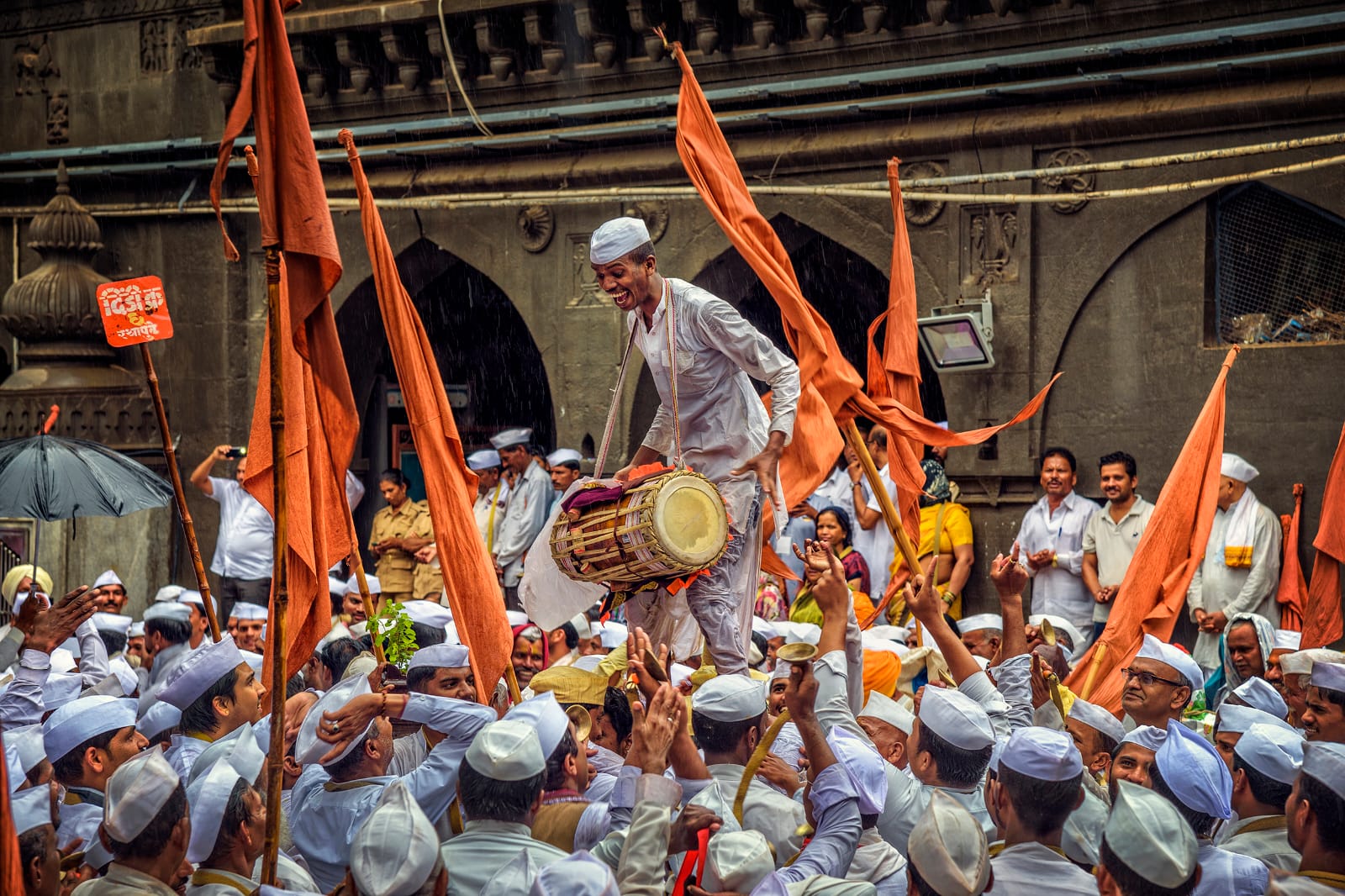
They walk the whole day and take a break in the evening. Various cultural programs take place at the halt. Bhajan, Kirtan, Fugadi (traditional game in Maharashtra) etc. Each and every person participates in those various traditional and cultural games and programs. The music of Mridangam and Manjeera (Indian musical instruments) makes everyone think of Lord Vithoba.
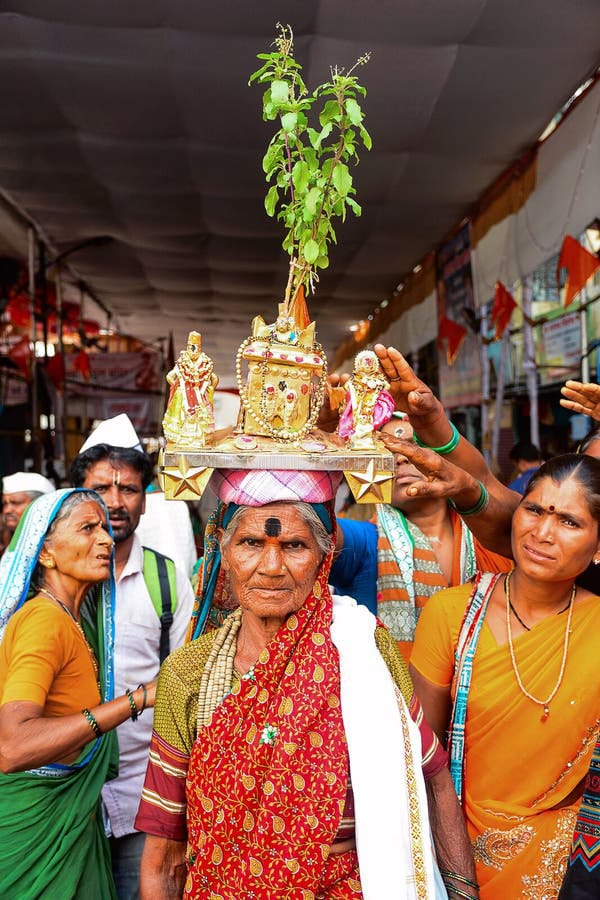
Women generally carry a plant of Holy Basil (known as Tulasi) throughout the journey. In Maharashtra, especially in the Warkari community, this Holy Basil plant has cultural and traditional value. But a scientific reason behind this is that Basil plants help to keep the oxygen level at its best so that no one will have any breathing difficulty.
_1688040797.jpg)
Another feature of Ashadhi Ekadashi is 'Ringan', a circular way to run the lord's horses. It represents the circumference of life where each of us has to play a variety of roles, but at the same time, we must enjoy all those moments in our life. All traditional and cultural games take place in this Ringan.
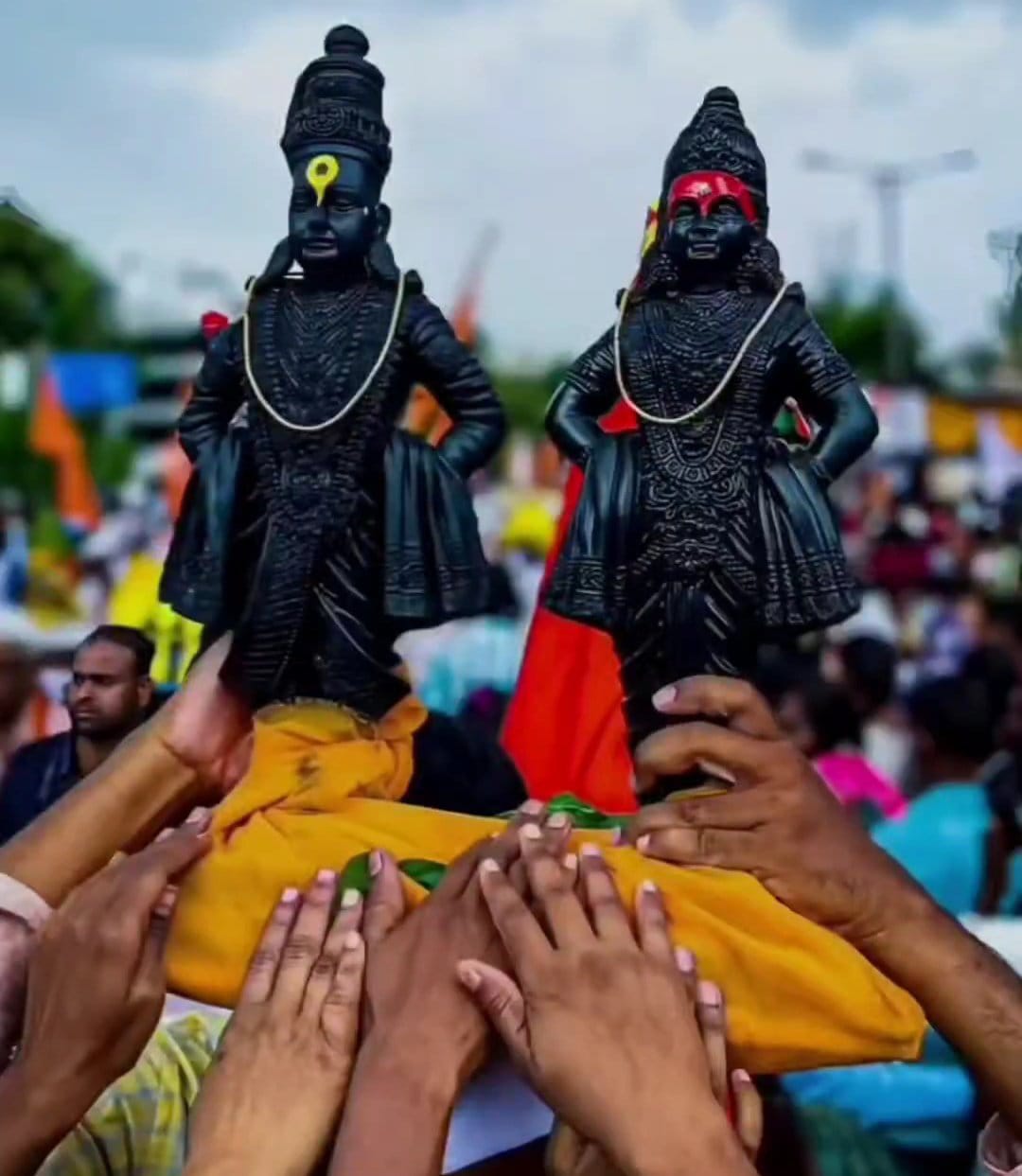
On reaching a destination in Pandharpur, all Warkari seek Darshan (sight) of Vithoba and Rakhumai, the aim behind their entire walking pilgrimage. The Wari is fun in its own way. All the hard work just to have a single sight of the Lord is so overwhelming. And more than that, people help each other in Wari, take care of each other no matter who the person is and from where he has come. The success of the Wari lies in the discipline every Warkari follows by himself.
In all this, the Maharashtra Police plays a crucial role throughout the journey. The way they handle the rush, standing all the time in the rain without going home, makes them real heroes. The government of Maharashtra makes sure that medical facilities are made available at each and every halt. All Warkari thank police and doctors for their contribution.
Today, 29th June is the Ashahdhi Ekadashi (11th day of Ashadh month) when Warkaris seek Darshan and leave for their home. Year after year today, even the younger generation is also becoming part of this holy festival. They are trying to preserve their rituals and traditions so that the upcoming generation can see what the Wari is.
© Copyright 2023. All Rights Reserved Powered by Vygr Media

